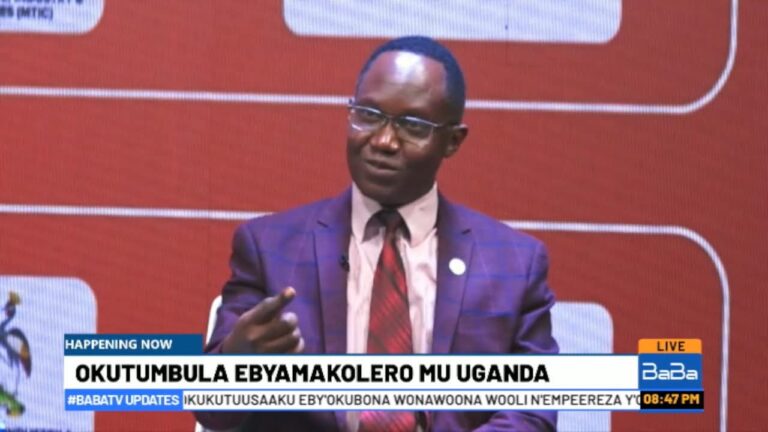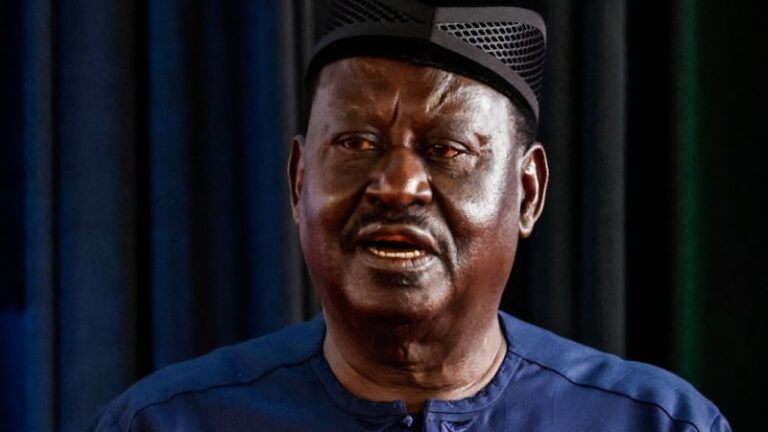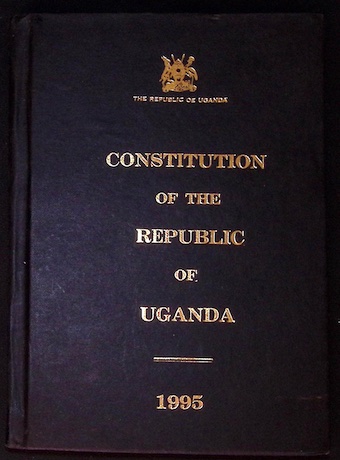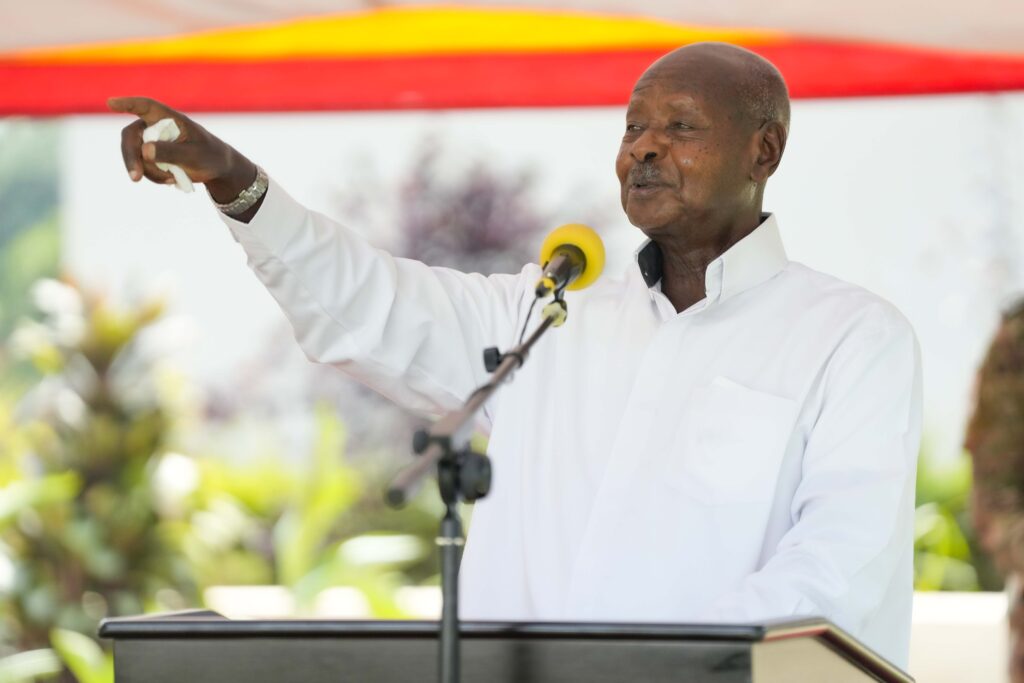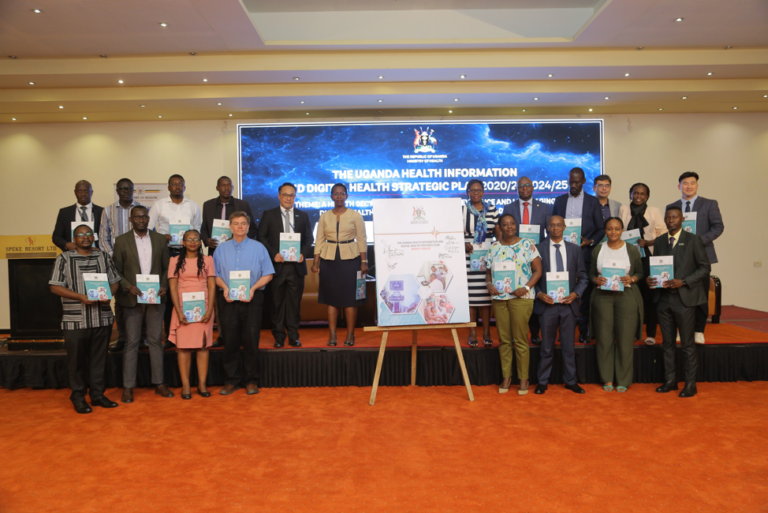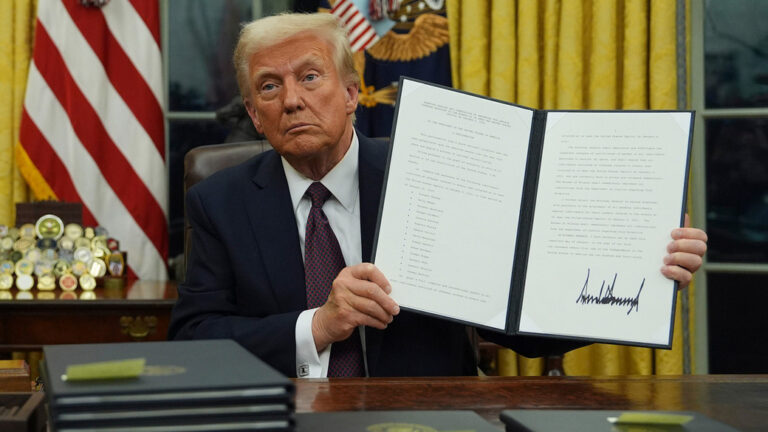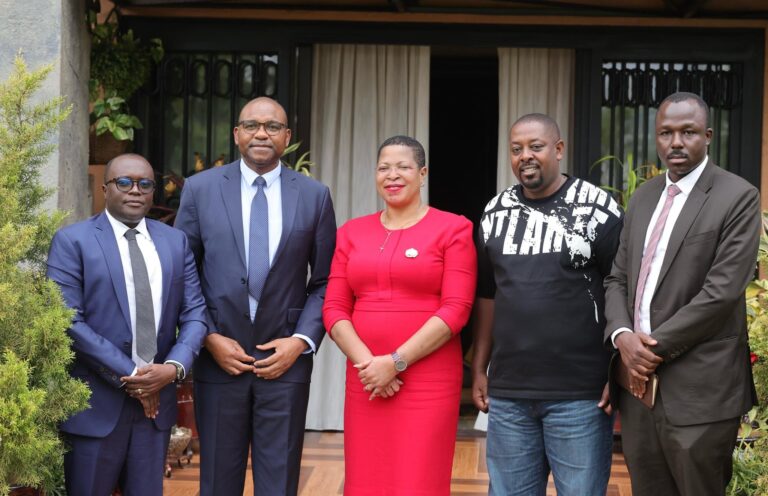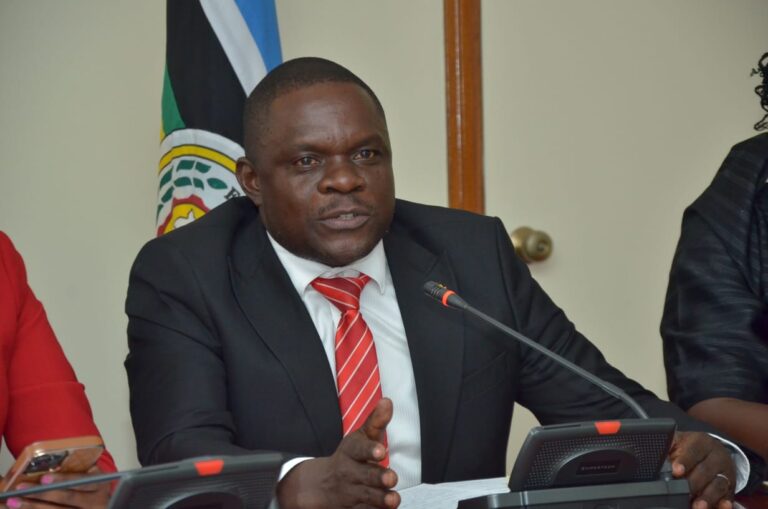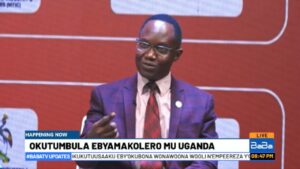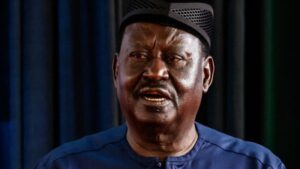After years of fear and hunger, President Museveni has ordered the army off Uganda’s lakes. President Yoweri Kaguta Museveni has directed that the indigenous fishermen to manage the lakes, assisted by the Uganda People’s Defence Forces (UPDF)’s Fisheries Protection Unit (FPU).
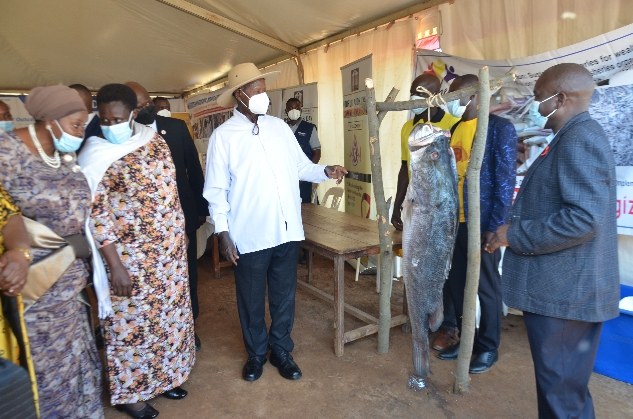
By Samuel Mwesigwa | Jinja
JINJA | 5th August 2025 — President Yoweri Museveni’s latest directive ordering the UPDF to step back from active control of Uganda’s lakes and hand over fisheries management to indigenous communities has sparked a wave of reaction in Busoga – a region that has for years borne the brunt of military dominance on its waters. The announcement was made during a high-level consultative meeting with fishing communities and stakeholders at the State Lodge in Jinja.
The directive comes at a time when Busoga’s economy — historically dependent on fishing, sugarcane farming, and wetland rice cultivation — has been under immense strain. The region, once a reliable vote base for the ruling NRM government, has in recent years expressed deep frustration over policies perceived to stifle its livelihood. The deployment of the army on the lakes, plummeting sugarcane prices, and a ban on wetland rice growing have left many households with little or no income.
“If the President was not against Busoga’s development, then he was certainly misinformed,” one district leader commented. “Fishing, sugarcane, and wetland rice have carried this region for decades. And yet, we’ve seen all three under attack without any immediate alternatives.”
Despite repeated appeals from Busoga leaders — including then Speaker of Parliament, Rt. Hon. Rebecca Kadaga — for urgent interventions to support the region’s economy, government response was often slow or absent, leading to growing discontent. For the first time in decades, Busoga’s support for the ruling party began to waver in the 2021 elections, with many blaming national policies for deepening poverty in the region.
A Shift in Tone and Policy
However, in his address at the Jinja meeting, President Museveni appeared to acknowledge past missteps, while outlining a new path forward for the fishing sector and surrounding communities.
“Now that we have peace, let’s organize this sector and eventually return the army to the barracks,” the President said, adding that military involvement was never meant to be permanent.
He emphasized that indigenous fishermen, with their ancestral knowledge and cultural connection to the waters, are best placed to sustainably manage aquatic resources. The FPU and capital-intensive investors would only support this effort — particularly in protecting border waters from illegal activities and external intrusions.
Museveni also revisited Uganda’s rich fishing history, recalling how he once spearheaded the creation of the first fish processing plant at Masese Landing Site in Jinja. He blamed subsequent chaos, overcrowding, and the infiltration of illegal fishing gear for forcing him to deploy the military years later.
Now, with better organization and relative calm, the President is championing community-led regulation, aquaculture, and investment in alternative economic activities.
Alternative Livelihoods and Targeted Support
While defending the push against wetland farming and illegal sugarcane expansion, the President admitted that Busoga and other regions need viable alternatives. He cited successful examples of fish farming in Limoto and Kawumu, where communities earn over UGX 80 million annually, and urged residents to transition from traditional lake fishing to pond-based aquaculture.
To support this transition, the President proposed the creation of a specialized fisheries fund, separate from the Parish Development Model (PDM), which often lacks the scale required for capital-heavy fishing ventures. He promised UGX 1 billion per SACCO, with groups organized based on proximity and purpose.
“The fishing sector needs more capital. UGX 100 million per parish is not enough. We are going to organize SACCOs for fishermen and invest directly,” he said.
He further directed the Ministry of Agriculture, Animal Industry, and Fisheries to fast-track regulatory reforms, giving them one month to finalize sector guidelines.
Broader Commitments to Communities
President Museveni also made broader pledges aimed at improving the quality of life at Uganda’s landing sites and island communities, including:
- Establishment of public toilets, clean water points, and health facilities,
- Construction of boarding schools for island children,
- Creation of a police water safety and emergency unit, and
- Gazetting of fish breeding zones and swamps to protect the environment.
He called for an end to the importation of illegal fishing nets and even the raw materials used to manufacture them. “We must criminalize the importation of banned nets and threads,” he declared.
Echoes of the Past, Promises for the Future
While the President’s latest declarations have been welcomed in some quarters, many remain skeptical. They point to years of silence and inaction — even as prominent figures like Kadaga and cultural leaders sounded the alarm.
Still, the Jinja meeting may mark a genuine turning point, especially if promises translate into real programs, capital access, and community ownership.
“This part of Africa is our ancestral home,” President Museveni said. “The heritage of the area is based on Emyooga — skill-based economic specializations. We must empower those with omwooga (skills) in fishing to lead the transformation of this sector.”
The meeting was attended by a range of leaders including First Deputy Prime Minister and Minister for EAC Affairs, Rt. Hon. Rebecca Kadaga, Third Deputy Prime Minister, Hon. Rukia Nakadama, Minister for the Presidency, Hon. Milly Babalanda, and several other national ministers and district leaders


